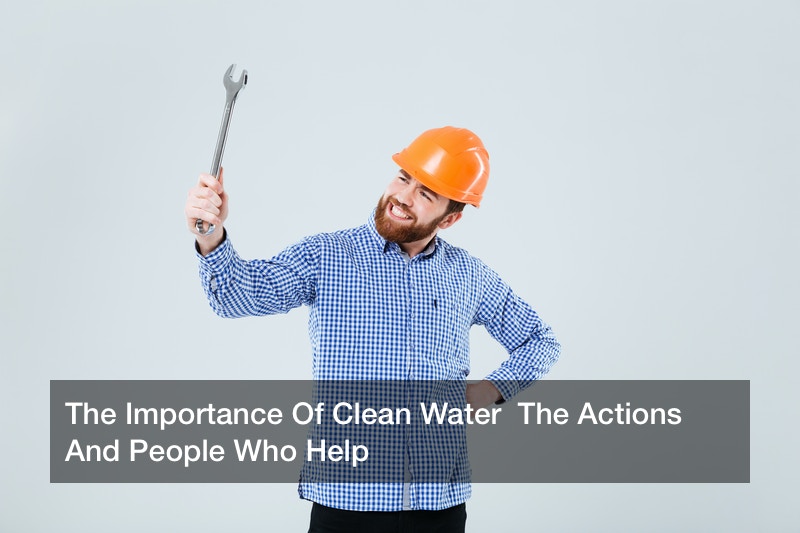
In the United States and around the world, clean water is important. Citizens use clean water to drink, bathe, clean, irrigate, and much more. In addition, since hydration is a key to survival, human beings would not be able to survive without clean water. However, it’s not only human beings that benefit, thrive, and survive because of water. Animals use clean water for the same purposes. But, unfortunately, we, as human beings, and animals do not always get clean water. In fact, statistically speaking, just 3% of the water on Earth is fresh water. Additionally, 16,000 chemical spills from various transportation vehicles end up polluting the ground water we hold so dear; and, just 1% of the water on Earth is available and suitable to drink. Needless to say, this can be very dangerous. We need clean water. So, here are actions you can take to ensure water doesn’t become dirty water, and here are the people who help.
Dirty Water Treatment: What Is It? Who Does It?
To begin, dirty water is classified as water that has been contaminated by outside, or foreign, toxic substances. There are many ways in which groundwater, used for drinking and other tasks, experiences pollution. Some common groundwater pollution is caused by hazardous waste. On certain construction sites, there may be containers storing hazardous waste. This is always risky, because these containers can easily get holes in them. One hole causes a tiny leak, and this leak then leads to pollution of water. When the hazardous waste gets in the water, it cannot be consumed by humans or animals.
Other forms of groundwater pollution include, but are not limited to, septic tanks, oil and gasoline spills, landfill leaks, and chemicals or treatments for roadways. Regardless of the cause of pollution, one thing is for certain- this dirty water needs a treatment.
Specifically in groundwater, this dirty water is treated by groundwater remediation. By definition, ground water remediation is a structured process that removes all of the pollutants from the water. There are many different techniques individuals, mainly a remediation contractor, can use to rid the groundwater of the pollutants. These techniques all depend on the situation and location of the groundwater.
A remediation contractor may use bioaugmentation in order to remove the pollution from the water. This technique is only successful if the groundwater has not experienced degradation, yet. If the water has experienced this then another technique would be more suitable.
Other techniques a remediation contractor might perform to rid the groundwater of pollutants are, bioventing, bioslurping, and phytoremediation. It is important to note that all of these techniques have their own benefits and requirements for success with groundwater. Therefore, if you are attempting to clean dirty water, you should research which technique would be best for the water that you have.
As previously mentioned, a remediation contractor is the individual that cleans the dirty water. By definition, a remediation contractor is an individual that is hired to clean, provide a remedy for, and remove any contaminated or toxic substances from water. In addition, a remediation contractor will respond to any concerns or problems with clean water. If you want clean groundwater for drinking and other uses, you must call a remediation contractor to make the water right again!
The Benefits Of Clean Water
As previously mentioned, clean water is not just used for drinking by individuals and animals. In fact, clean water has many other uses and benefits.
The Environment: Dirty water severely affects the environment, and this is one of the reasons why a remediation contractor should work to provide clean water for all. Without clean water, the environment takes a toll because plants cannot survive to provide food for animals. Needless to say, the Earth would slowly begin to fall apart.
Additionally, without water, farms and those who use water for irrigation will not be as successful. In fact, they would not be able to carry out their daily tasks. This also takes a toll on the environment.
Hygiene: Without clean water, individuals’ hygiene will start to suffer and become almost non-existent.
